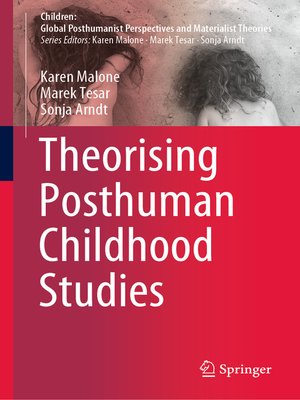Theorising Posthuman Childhood Studies
ebook ∣ Children: Global Posthumanist Perspectives and Materialist Theories
By Karen Malone

Sign up to save your library
With an OverDrive account, you can save your favorite libraries for at-a-glance information about availability. Find out more about OverDrive accounts.
Find this title in Libby, the library reading app by OverDrive.



Search for a digital library with this title
Title found at these libraries:
| Library Name | Distance |
|---|---|
| Loading... |
This book is a genealogical foregrounding and performance of conceptions of children and their childhoods over time. We acknowledge that children's lives are embedded in worlds both inside and outside of structured schooling or institutional settings, and that this relationality informs how we think about what it means to be a child living and experiencing childhood. The book maps the field by taking up a cross-disciplinary, genealogical niche to offer both an introduction to theoretical underpinnings of emerging theories and concepts, and to provide hands-on examples of how they might play out. This book positions children and their everyday lived childhoods in the Anthropocene and focuses on the interface of children's being in the everyday spaces and places of contemporary communities and societies. In particular this book examines how the shift towards posthuman and new materialist perspectives continues to challenge dominant developmental, social constructivist and structuralist theoretical approaches in diverse ways, to help us to understand contemporary constructions of childhoods. It recognises that while such dominant approaches have long been shown to limit the complexity of what it means to be a child living in the contemporary world, the traditions of many Eurocentric theories have not addressed the diversity of children's lives in the majority of countries or in the Global South.







